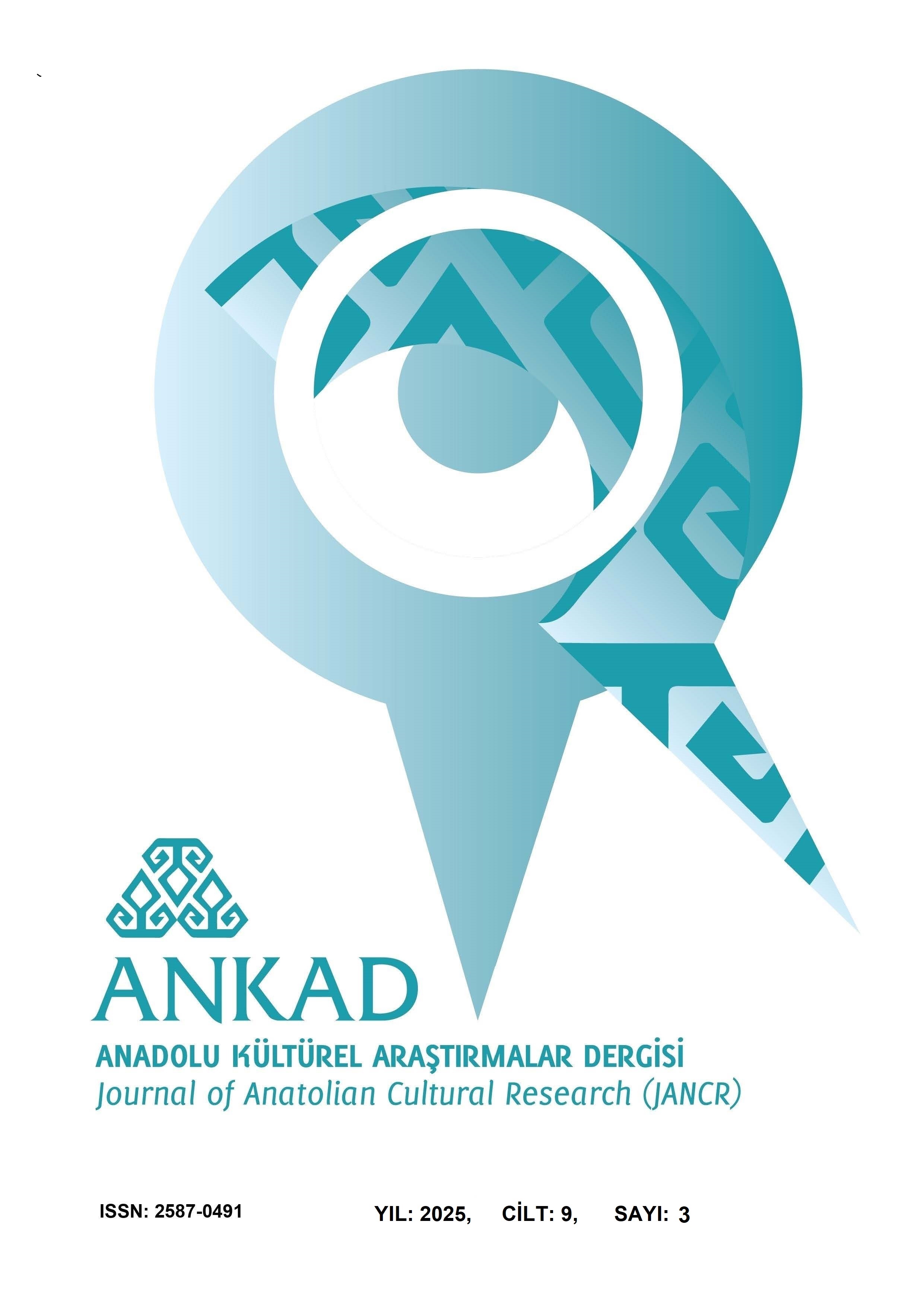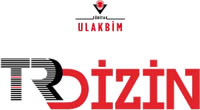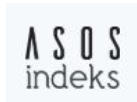Attitudes of Pre-Service Teachers towards Teaching English to Young Learners to Improve their 21st Century Learning Skills
DOI:
https://doi.org/10.63556/ankad.v9i3.281Keywords:
Pre-service teachers, attitudes, 21st-century skills, teaching English to young learnersAbstract
The aim of this study is to investigate pre-service teachers’ attitudes toward teaching English to young learners in order to enhance their 21st-century learning skills. The research employs a sequential explanatory mixed-methods design, incorporating both quantitative and qualitative data collection. The quantitative phase utilized the “21st Century Teacher Skills” scale (Orhan, Göksün & Kurt, 2017), comprising 27 items across five sub-dimensions: administrative skills, technopedagogical skills, affirmative skills, flexible teaching skills, and generative skills. The qualitative phase involved semi-structured interviews to provide deeper insights into pre-service teachers’ perspectives. Participants included 50 pre-service teachers enrolled in the Teaching English to Young Learners course at a university in Istanbul, Türkiye. Quantitative data were analyzed using SPSS, and qualitative data were examined through content analysis. Findings reveal that pre-service teachers recognize the significance of 21st-century skills, particularly critical thinking, creativity, and technological integration, in improving their teaching practices. The study highlights a strong commitment to fostering a supportive and inclusive learning environment, with an emphasis on student engagement and the development of social-emotional learning. Moreover, pre-service teachers identified the importance of flexible, student-centered teaching strategies that incorporate technology to enhance learning outcomes. In conclusion, the study emphasizes the need for teacher education programs to focus on equipping pre-service teachers with the competencies required for teaching in 21st-century classrooms. These competencies include not only technical skills but also the ability to foster a supportive classroom culture. The findings call for an ongoing revision of teacher training curricula to ensure that future educators are prepared to meet the evolving demands of globalized, technology-driven education, especially when working with young learners.
References
Aksoy, M. E. (2010). Pre-service teachers’ attitudes towards the profession of teaching. Social Sciences Research Journal, 2, 197-212.
ANAGÜN, Ş., Atalay, N., Kilic, Z., & Yasar, S. (2016). The development of a 21st century skills and competences scale directed at teaching candidates: Validity and reliability study. Pamukkale Universitesi Egitim Fakultesi Dergisi-Pamukkale University Journal Of Education, (40).
Baz, E. H. (2016). Attitudes of Turkish EFL Student Teachers towards Technology Use. Turkish Online Journal of Educational Technology-TOJET, 15(2), 1-10.
Bedir, H. (2019). Developing a Framework for the Integration of 21st Century Learning and Innovation Skills into Pre-Service ELT Teachers' Practicum. International Online Journal of Education and Teaching, 6(4), 828-843.
Binkley, M., Erstad, O., Herman, J., Raizen, S., Ripley, M., & Rumble, M. (2010). Draft white paper 1: Defining 21st century skills. Available online also at: http://cms. education. gov.il/NR/rdonlyres/19B97225-84B1-4259-B423-4698E1E8171A/115804/defining21stcenturyskills. pdf [accessed in Kota Kinabalu, Malaysia: April 15, 2015].
Bozkurt, F. (2020). 21. yüzyıl becerileri açısından sosyal bilgiler öğretmenliği lisans programının değerlendirilmesi. Pamukkale Üniversitesi Eğitim Fakültesi Dergisi, (51), 34-64.
Burns, T., & Sinfield, S. (2004). Teaching, learning and study skills: A guide for tutors.
Büyüköztürk, Ş. (2018). Sosyal bilimler için veri analizi el kitabı. Pegem Atıf İndeksi, 001-214.
Cameron, L. (2001). Teaching languages to young learners. Cambridge university press.
Creswell, J. W. (2015). Educational research: Planning, conducting, and evaluating quantitative and qualitative research. pearson.
Celik, S., & Arikan, A. (2012). A qualitative study of the effectiveness of teacher education programs in preparing primary school English language teachers. PAMUKKALE UNIVERSITESI EGITIM FAKULTESI DERGISI-PAMUKKALE UNIVERSITY JOURNAL OF EDUCATION, (32), 77-87.
Cevik, M. (2019). Multidimensional 21st Century Skills Scale: Validity and Reliability Study. Cypriot Journal of Educational Sciences, 14(1), 11-28.
Chen, D. (2021). Toward an understanding of 21st-century skills: From a systematic review. International Journal for Educational and Vocational Guidance, 1-20.
Chu, S. K. W., Reynolds, R. B., Tavares, N. J., Notari, M., & Lee, C. W. Y. (2021). 21st century skills development through inquiry-based learning from theory to practice. Springer International Publishing.
Crandall, J. A. (2014). Teaching Young Learners English: From Theory to Practice. National Geographic Learning.
Dağhan, G., Kibar, P. N., Çetin, N. M., Telli, E., & Akkoyunlu, B. (2017). Bilişim teknolojileri öğretmen adaylarinin bakiş açisindan 21. Yüzyil öğrenen ve öğretmen özellikleri. Eğitim Teknolojisi Kuram ve Uygulama, 7(2), 215-235.
Eröz-Tuğa, B. (2013). Reflective feedback sessions using video recordings. ELT journal, 67(2), 175-183.
Fandino, Y. J. (2013). 21st century skills and the English foreign language classroom: A call for more awareness in Colombia. Gist Education and Learning Research Journal, 7, 190-208.
Fraenkel, J., Wallen, N., & Hyun, H. (1993). How to Design and Evaluate Research in Education 10th ed. McGraw-Hill Education.
Ganayem, A., & Zidan, W. (2018). 21st century skills: Student perception of online instructor role. Interdisciplinary Journal of e-Skills and Lifelong Learning, 14, 117-142.
Garton, S., Copland, F., & Burns, A. (2011). Investigating global practices in teaching English to young learners. ELT Research papers, 11(1), 1-24.
Göksün, D. O. (2016). Öğretmen adaylarının 21. yy. öğrenen becerileri ve 21. yy. öğreten becerileri arasındaki ilişki (Doctoral dissertation, Anadolu University (Turkey)).
Göksün, D., & KURT, A. (2017). The relationship between pre-service teachers' use of 21st century learner skills and 21st century teacher skills. Egitim ve Bilim, 42(190).
Gömleksiz, M. N., Sinan, A. T., & Doğan, F. D. (2019). Perceptions of prospective teachers of Turkish, Turkish language and literature and contemporary Turkish dialects of the 21st century skills and competences. Avrasya Uluslararası Araştırmalar Dergisi, 7(19), 163-185.
Gungor, M. N. (2016). Turkish pre-service teachers' reflective practices in teaching English to young learners. Australian Journal of Teacher Education (Online), 41(2), 137-151.
Häkkinen, P., Järvelä, S., Mäkitalo-Siegl, K., Ahonen, A., Näykki, P., & Valtonen, T. (2017). Preparing teacher-students for twenty-first-century learning practices (PREP 21): a framework for enhancing collaborative problem-solving and strategic learning skills. Teachers and Teaching, 23(1), 25-41.
Hismanoglu, S. (2012). İNGİLİZCE ÖĞRETMENİ ADAYLARININ İNGİLİZCE ÖĞRETMENİ YETİŞTİRME PROGRAMI İLE İLGİLİ GÖRÜŞLERİ. Eğitim ve Öğretim Araştırmaları Dergisi, 1(2).
Jw, C. (2009). Research design-qualitative, quantitative, and mixed methods approaches. SAGE, Ca; ofprnia.
Karkoulia, K. C. (2016). Teachers' attitudes towards the integration of Web 2.0 tools in EFL teaching. Research Papers in Language Teaching and Learning, 7(1), 46.
Kaufman, K. J. (2013). 21 ways to 21st century skills: why students need them and ideas for practical implementation. Kappa Delta Pi Record, 49(2), 78-83.
Kersten, K., Steinlen, A. K., Tiefenthal, C., Wippermann, I., & Flyman Mattsson, A. (2010). Guidelines for language use in bilingual preschools. Bilingual preschools, 2(1), 103-116.
Kivunja, C. (2015). Exploring the pedagogical meaning and implications of the 4Cs" super skills" for the 21st century through Bruner's 5E lenses of knowledge construction to improve pedagogies of the new learning paradigm. Creative education.
Larson, L. C., & Miller, T. N. (2011). 21st century skills: Prepare students for the future. Kappa Delta Pi Record, 47(3), 121-123.
Michaels, R., Truesdell, E., & Brown, B. (2015). Incorporating 21st-century skills into teacher preparation programs: A collaborative approach. Journal of Scholastic Inquiry: Education, 5(1), 47-72.
Motallebzadeh, K., Ahmadi, F., & Hosseinnia, M. (2018). Relationship between 21st Century Skills, Speaking and Writing Skills: A Structural Equation Modelling Approach. International Journal of Instruction, 11(3), 265-276.
Neal, M. N. (2010). An examination of teachers' perceptions: Ohio's early childhood teacher preparation programs. Syracuse University.
Newman, K. L., Samimy, K., & Romstedt, K. (2010). Developing a training program for secondary teachers of English language learners in Ohio. Theory into Practice, 49(2), 152-161.
Norahmi, M. (2017). 21st-century teachers: The students’ perspectives. Journal on English as a foreign Language, 7(1), 77-96.
Oz, H., Demirezen, M., & Pourfeiz, J. (2015). Digital device ownership, computer literacy, and attitudes toward foreign and computer-assisted language learning. Procedia-Social and Behavioral Sciences, 186, 359-366.
Özkan, H., & Arikan, A. (2010, November). To what extent does English language teacher education curriculum prepare prospective teachers for teaching young learners. In Proceedings of the International Conference on New Trends in Education and their Implications (pp. 18-23).
P21 Partnership for 21st Century Skills (2019b). Framework for 21st Century Learning Definitions, Battelle for Kids. Retrieved on February 23, 2025 from http://static.battelleforkids.org/documents/p21/P21_Framework_DefinitionsBFK.pdf
Partnership for 21st Century Skills. (2009). P21 framework definitions. ERIC Clearinghouse.
Scott, W. A. (1995). Teaching English to children.
Slattery, M., & Willis, J. (2001). English for primary teachers: A handbook of activities and classroom language (Vol. 1). Oxford University Press.
Snow, M. A. (1989). Negotiation of meaning in the immersion classroom. Negotiation of Meaning. Teacher's Activity Manual. Rockville: Montgomery County Public Schools.
Snow, M. A. (1990). Instructional methodology in immersion foreign language education. Foreign language education: Issues and strategies, 156-171.
Tabachnick, B. G., & Fidell, L. S. (2013). Using multivariate statistics, 6th edn Boston. Ma: Pearson.
Taber, K. S. (2018). The use of Cronbach’s alpha when developing and reporting research instruments in science education. Research in science education, 48, 1273-1296.
Tsourapa, A. (2018). Exploring teachers' attitudes towards the development of 21 st century skills in EFL teaching. Research Papers in Language Teaching & Learning, 9(1).
Urbani, J. M., Roshandel, S., Michaels, R., & Truesdell, E. (2017). Developing and modeling 21st-century skills with preservice teachers. Teacher Education Quarterly, 44(4), 27-50.
Valli, P., Perkkilä, P., & Valli, R. (2014). Adult Pre-Service Teachers Applying 21st Century Skills in the Practice. Athens Journal of Education, 1(2), 115-129.
Wagner, T. (2010). The global achievement gap: Why even our best schools don't teach the new survival skills our children need-and what we can do about it. ReadHowYouWant. com.
Yavuz, A., & Topkaya, E. Z. (2013). TEACHER EDUCATORS'EVALUATION OF THE ENGLISH LANGUAGE TEACHING PROGRAM: A TURKISH CASE. Novitas-royal (research on youth and language), 7(1).
Zhang, H., Yuan, R., & He, X. (2020). Investigating university EFL teachers’ perceptions of critical thinking and its teaching: Voices from China. The Asia-Pacific Education Researcher, 29(5), 483-493.
Downloads
Published
How to Cite
Issue
Section
License
Copyright (c) 2025 Journal of Anatolian Cultural Research

This work is licensed under a Creative Commons Attribution-NonCommercial 4.0 International License.










